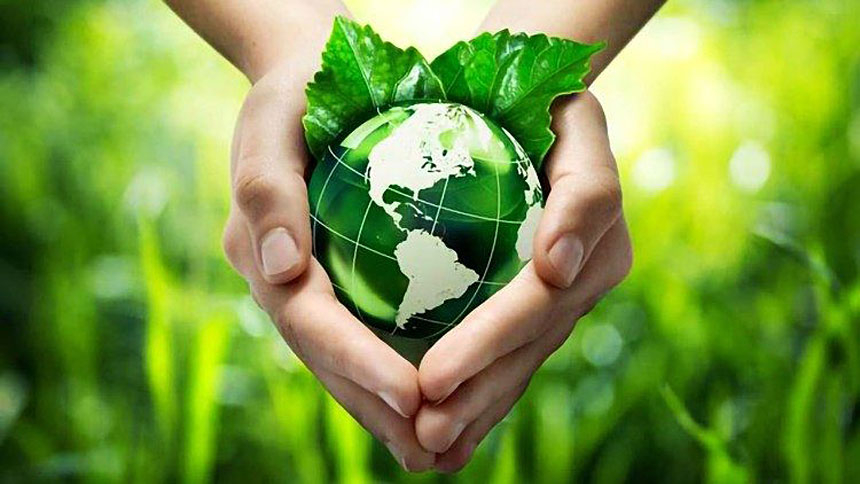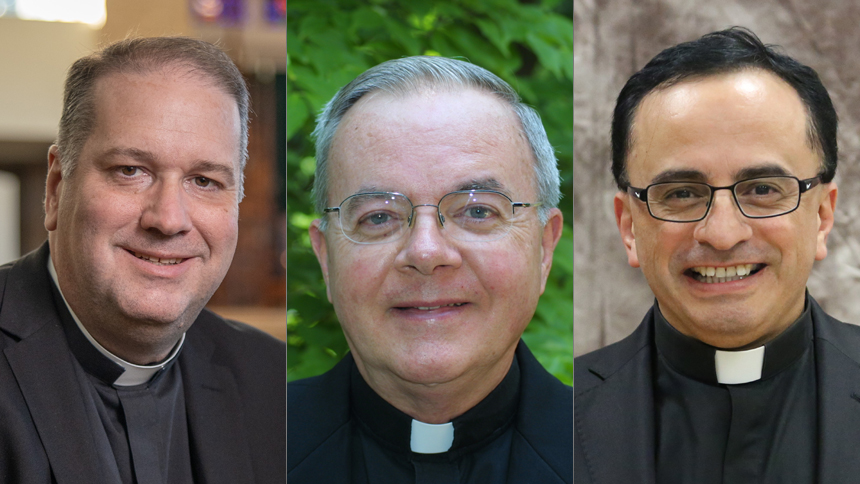
In his encyclical Caritas In Veritate, Pope Benedict XVI told Catholics that in using the environment God gave us, we have a responsibility to the poor and future generations. Like Pope Benedict, Pope Francis, in his encyclical, Laudato Sí, calls on Catholics and world citizens to take better care of the beautiful but fragile planet God has provided his people. Pope Francis wants Catholics to help those most seriously impacted by environmental degradation.
Neither Pope Benedict's nor Pope Francis’s encyclical is meant as a political document. They both represent profound, theologically grounded moral statements urging everyone to take inspired action to care for God's creation. But Pope Francis wishes for Catholics to lead the way. Many Catholic parishes are doing just that!
The enormity of the environmental challenges described by Pope Francis and the complex nature of the solutions needed to deal with them can overwhelm us. It may seem impossible for individuals and small groups to do much good. However, modest changes undertaken by many people can be very impactful. Change can start, and we see that happening at local parishes.
North Carolina Catholics Caring for our Common Home (NCCCCH) is a group of Catholics from parishes throughout the Raleigh diocese. The group disseminates information about Catholic environmental stewardship to parishes. NCCCCH is supported by the Office of Human Life and Dignity at the Diocese of Raleigh, which brings together parish-based Care for Creation ministries, Laudato Sí circles, and Caring for our Common Home committees and committed individuals.
Recently, members of NCCCCH contacted several local priests to learn more about how they are bringing Pope Francis’s message in Laudato Sí to their parishioners and what they and their churches are doing to implement the pope's call. The information they provided may help other parishes and parishioners implement their own environmental stewardship activities and programs.
Father Scott McCue, who has been at St. Thomas More Parish in Chapel Hill for 13 years and moves to St. Michael Parish in Cary this summer, underscored the relationship between God's creation and impoverished people. "In the incarnation, the Earth and Heaven were wedded. Jesus came to ... heal us, to reach out to all those on the margins of life, especially the poor and outcasts,” he said.
Father Scott describes for his parishioners how Pope Francis’s message integrates ecology with concern for the less fortunate. "The holy father says, 'We have to realize that a true ecological approach always becomes a social approach; it must integrate questions of justice in debates on the environment … to hear both the cry of the Earth and the cry of the poor.'"
Father Romen Acero, from St. Gabriel Church in Greenville, identified the harmful effects of extreme weather on food production — which, he also noted, harms the poor. Father Romen alerts his parishioners that, with "the extreme changes in weather, huge amounts of rain and longer dry seasons, farmers are not producing enough, and food is more expensive now."
Monsignor Michael Shugrue, former rector of Sacred Heart [then] Cathedral and 2016-2017 diocesan administrator, told NCCCCH that he continues to coordinate fund-raising efforts to assist underprivileged families in Uganda as they deal with increasingly severe environmental problems. The funds help provide lunches for Ugandan students "whose parents cannot afford to pay for their school lunches." Another project overseen by Monsignor Shugrue teaches adults about sustainable farming in Uganda — “replanting trees and marketing crops" — to "counteract the loss of so many trees" due to overdevelopment.
NCCCCH also asked these priests to explain how local, parish-based environmental initiatives resonate outside those parishes. All three priests pointed to how such activities and programs connect local parishes with the outside world and future generations.
As Father Scott put it, "We see that we need one another, we cannot exist as islands, we work for the good of all. The decisions that we make now concerning environmental stewardship will have an impact on those who come after us."
Similarly, Father Romen said his parishioners understand that taking care of the natural environment in Greenville today has far-reaching consequences. It guarantees "better conditions of life for everyone. If we take care of our natural resources," we are ensuring good conditions for "future generations."
Monsignor Shugrue lamented that while he limits his use of water and electricity to express "solidarity” with his "Ugandan sisters and brothers," he realizes his stewardship does not necessarily help Ugandans directly. They "have no electricity and ... their children walk at least a mile before breakfast and after dinner to obtain the water they need for cooking and washing," he said.
Nevertheless, he leads through the example of his environmental awareness and everyday attention to natural resource conservation. He demonstrates how individual behaviors reflect Pope Francis's larger moral imperative.
In addition, these priests reported about specific parish-sponsored environmental actions and programs they advocate for. "From our early recycling programs, to composting, to our San Isidro Labrador Garden, to our three solar arrays, we have shown that we take seriously the cry of the earth," explained Father Scott.
St. Gabriel Parish requires using environmentally friendly materials for their parish receptions, Father Romen said. And, he remarked, the parish does what it can to conserve water and maintains a no helium balloons policy.
Then there are the Ugandan outreach efforts mentioned by Monsignor Shugrue.
These are a few examples of how three priests enact Pope Francis’s encyclical and the importance of doing so. Many other parishes in North Carolina are doing similar work to care for God’s creation. Catholics can act alone or with their families or larger parish-based groups to implement the pope's message. Even small steps contribute to the bigger mission.
Monsignor Shugrue best expressed the moral responsibility confronting Catholics and everyone else capable of acting: "God has given the care of this world to the human race. We have a religious/moral obligation to care for the gift God has given to us and not let it become a mess for future generations."
To learn more
The Laudato Si’ Action Platform
For more information about NCCCCH, contact Monica Kleimeyer at mitzkleimeyer@gmail.com or Deacon Joshua Klickman, M.A. at Deacon.Joshua.Klickman@deaconsdor.org.
Below: Father Scott McCue, Monsignor Michael Shugrue and Father Romen Acero


